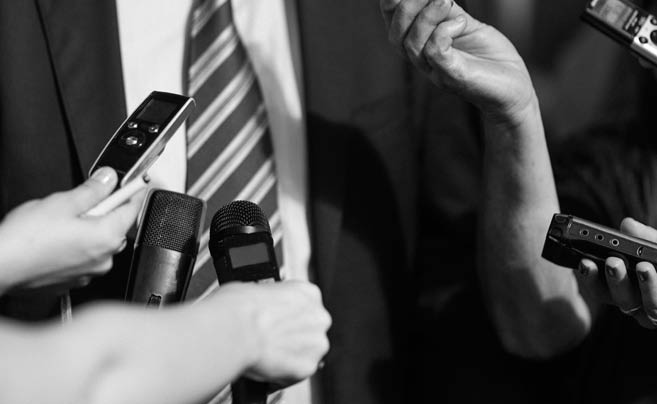Unlike other forms of media, television is both visual and audial. When being broadcast across this multi-sensory medium you have to be hyper-aware of things such as body language, dress, background and movement, as these can all contribute to how you capture your audience’s attention on a screen.
To appear credible on television, you need to look and sound professional.
Here are some tips to help you deliver a good television interview.
Prepare, prepare, prepare
The best thing you can do for a television interview is to deliver a clear, concise message. For this to happen, you need to prepare and practice thoroughly before every interview.
Write out a game plan that covers key issues, possible questions and answers for each possible question. Think about the messages you want to communicate throughout your interview. Once you have decided what these are, you will be better prepared to weave your key messages into your responses.
Practicing your responses is extremely important in your preparation. Practice answering questions in front of the mirror, or film yourself so that you can identify areas for improvement. The better prepared you are, the better you will be able to get your key messages across.
Look the part
It is important to look relaxed and calm, particularly as the audience will be able to see your facial expressions. If you look and speak confidently, you will appear more credible. If you make a mistake, try not to draw attention to it, and the audience won’t notice either.
Try to use slow, controlled gestures, and only use hand gestures if they complement what you are saying. If you are seated in a swivel chair, try not to move around.
Wear a simple and professional outfit. Avoid wearing stripes, checks, herringbone, small intricate designs or flashy jewellery as they can clash with the interview set, and be distracting when viewed on a screen.
Be energetic
It is important to speak more expressively and energetically than usual, otherwise your recorded voice can sound monotonous. Your voice should lift and drop, and increase and decrease in volume.
It is important not to ramble. Take a moment to think about what you will say before you say it. If the journalist interviewing you is quiet, don’t feel as though you need to keep talking. Keeping your words concise will help people digest what you are saying.
If you are unsure about how to best answer a question, try repeating the question back to the journalist to give you some extra time to think about your questions. Pause instead of using filler words such as ‘um’ while thinking.
If you make a mistake, just correct yourself and move on. Don’t dwell on it.
Don’t look at the camera
Don’t stare directly at the camera or continuously shift your gaze between the journalist and the camera. This can make viewers feel uncomfortable and they may not pay attention to what you are discussing.
It is best to hold eye contact and focus on the journalist and pretend the camera is not in the room.
Interviews are an excellent way to deliver your key messages directly to your audience. Ensure you do adequate preparation for the interview, particularly if it’s live television. Practising will help you feel more confident in your presentation and approach to the interview.






I have read a few good stuff here. Certainly worth bookmarking for revisiting.
I wonder how so much attempt you place to create this kind of great informative web site.
Sweet blog! I found it while surfing around on Yahoo News.
Do you have any tips on how to get listed in Yahoo News?
I’ve been trying for a while but I never seem to get there!
Cheers